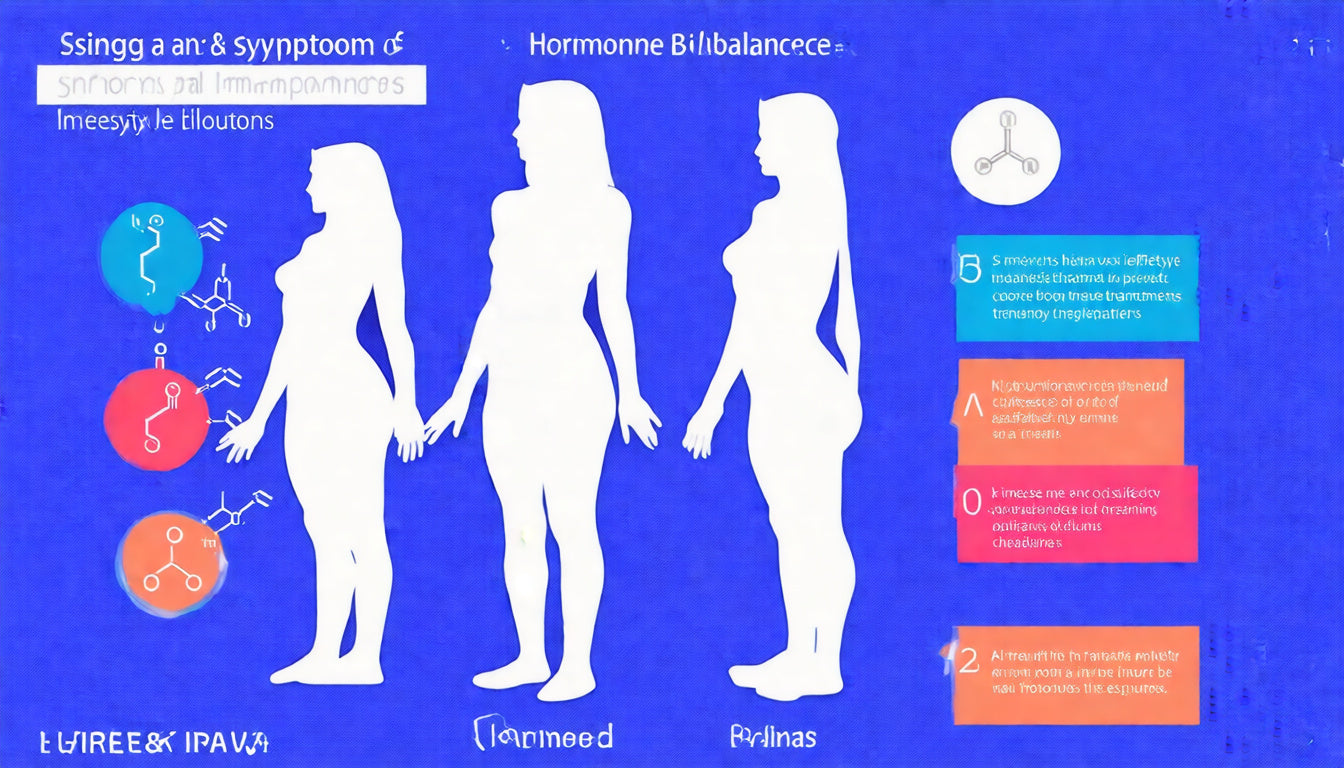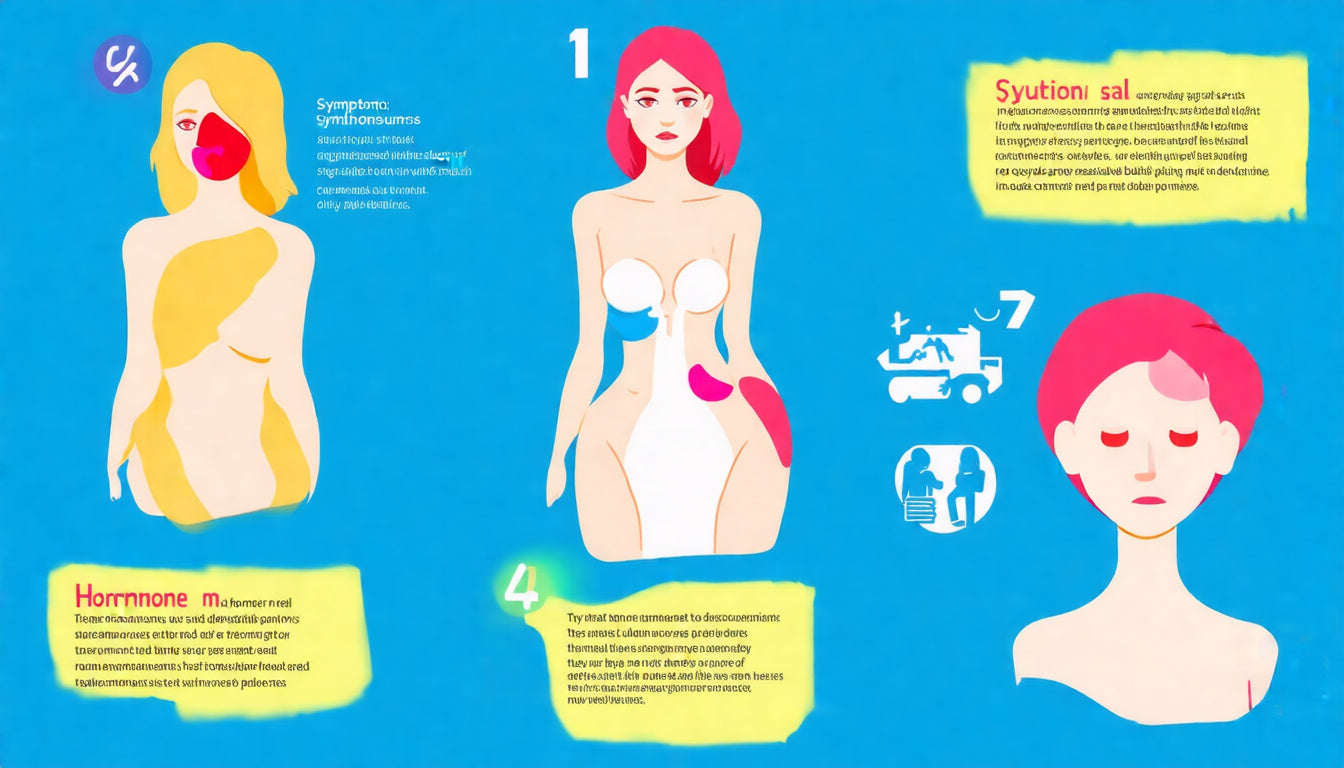
Unraveling the Mystery of Hormonal Imbalances: Signs, Symptoms, and Solutions
Hormonal imbalances affect millions of people worldwide and can disrupt overall health and wellbeing. Understanding the signs and symptoms of hormonal imbalance is crucial for early detection and effective management. This article explores the common indicators of hormonal disruptions and offers practical solutions to restore balance and improve quality of life.
What Are Hormonal Imbalances?
Hormones are chemical messengers produced by glands in the endocrine system. They regulate vital bodily functions such as metabolism, mood, growth, reproduction, and energy levels. When hormone levels are too high or too low, it causes an imbalance that can lead to various physical and mental health issues.
Common Signs and Symptoms of Hormonal Imbalance
Recognizing hormonal imbalances can be challenging because symptoms often overlap with other conditions. However, certain signs are more indicative of hormonal disruptions:
1. Unexplained Weight Changes
Sudden weight gain or loss without significant changes in diet or exercise may signal hormonal issues. For example, thyroid hormone imbalances can slow down or speed up metabolism, affecting body weight.
2. Fatigue and Low Energy
Persistent tiredness, even after adequate rest, can be linked to hormonal problems such as adrenal fatigue or imbalanced cortisol levels.
3. Mood Swings and Mental Health Concerns
Hormones significantly influence brain chemistry. Imbalances can result in mood swings, anxiety, depression, irritability, and difficulty concentrating.
4. Irregular Menstrual Cycles and Fertility Issues
Women may experience missed periods, heavy bleeding, or severe PMS due to fluctuations in estrogen and progesterone.
5. Hair Thinning and Hair Loss
Hormonal fluctuations, especially involving androgens like testosterone, can lead to hair thinning and loss in both men and women.
6. Skin Problems
Acne, dryness, or excessive oiliness are often signs that hormones are off balance.
7. Sleep Disturbances
Hormones such as melatonin regulate sleep; imbalance can cause insomnia or disrupted sleep patterns.
Causes of Hormonal Imbalance
Several factors contribute to hormonal disruptions:
- Stress: Chronic stress elevates cortisol, disrupting other hormone functions.
- Poor Diet: Nutrient deficiencies impact hormone production.
- Medical Conditions: Thyroid disorders, polycystic ovary syndrome (PCOS), diabetes, and others.
- Lifestyle Factors: Lack of exercise, insufficient sleep, and exposure to toxins.
- Aging: Natural hormonal decline, especially around menopause and andropause.
Solutions and Treatments for Hormonal Imbalance
Lifestyle Modifications
- Balanced Diet: Eating nutrient-rich foods supports hormone health.
- Regular Exercise: Enhances metabolism and stress management.
- Stress Reduction: Techniques like meditation, yoga, or deep breathing.
- Adequate Sleep: Vital for hormone regulation.
Medical Interventions
- Hormone Replacement Therapy (HRT): Used in cases like menopause.
- Medications: To regulate thyroid or insulin levels.
- Supplements: Vitamins D, B-complex, magnesium, and others may help.
Natural Remedies for Hair Health
Hair loss is a common symptom of hormonal imbalance. Using specialized hair products formulated to strengthen and nourish hair can be highly beneficial. For those experiencing hair thinning due to hormonal changes, exploring scientifically formulated hair products invigorates scalp health and might help restore hair vitality.
When to See a Doctor
If you notice persistent symptoms such as unexplained weight changes, hair loss, mood disturbances, or menstrual irregularities, consult a healthcare professional. Blood tests and hormone evaluations can help identify the underlying issues.
Hormonal imbalances, while often confusing, are manageable with the right approach. Awareness of signs and early intervention, combined with lifestyle changes and appropriate treatments, can help restore balance and improve overall wellbeing. If hair loss accompanies your symptoms, consider exploring targeted solutions designed to support hair health and growth. For more effective hair care options backed by science, visit Watermans.
Unlock the secret to balanced hormones and healthier living today!













